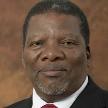Speech by the Minister of Rural Development and Land Reform, Mr G Nkwinti, (MP) closing remarks at the general meeting of the African Farmers Association of South Africa, St Georges Hotel, Gauteng "Building vibrant, equitable and sustainable rural communities" "Reversing the legacy of the 1913 Natives Land Act"
23 Oct 2012
The President of AFASA,
The Leadership of AFASA, in its entirety;
Ladies and Gentleman;
I am greatly honoured by your invitation for me to make the closing remarks at your conference.
Congratulations on a successful conference.
Let me emphasise this point, these are closing remarks not a speech. The President made the speech last night, and raised a couple of important points on land reform. We are going to study them very closely and carefully and interpret them into the implementation regime of the policies adopted by the National Policy Conference of the Ruling Party.
Ladies and gentleman we are all agreed on the fundamentals:
That the democratic state inherited a colonial apartheid economy based on racial capitalism; and, that this must change radically to reflect the country's demographics.
That we are compelled to execute change within our framework, which provides for a 'just and equitable' principle in the public interest. That we must grow our economy to create a solid platform for combating poverty, unemployment and income inequality; which are nothing but a symptom or manifestation of underdevelopment in certain areas of our society brought about by the racial structure of economy.
What we seem not to have consensus on, is how we fundamentally restructure the economy in order to rapidly achieve our goal of a developmental state and a caring society.
There are those who hold the view that growth should precede redistribution, as of that was a natural order of things. There are those who hold the view that growth in a developing society can only come through fundamental redistribution of national assets and resources.
Now, land is a fundamental source of wealth and economic growth. A radical redistribution of land and landed assets is the surest way of growing the economy and fighting poverty, unemployment and income inequality.
But, in a constitutional democracy you must do that through institutions and laws which are not in conflict with the constitution.
The National Policy Conference of the Ruling Party adopted institutional and political processes which must be implemented by the state to achieve a radical change in the systems and patterns and ownership and control of land and landed assets. The Department of Rural Development and Land Reform, working with partners in the sector, has advanced a great deal towards achieving the goal.
The biggest challenge we are faced with is how we reverse the legacy of the 1913 Natives Land Act in such a way as to effectively decongest the 13% of land which is plus minus 57% of the population.
If we are to reverse this legacy comprehensively we must not only, think about land changing hands between black and white. We must also think about how we reverse the devastation of the environment, as a result of over-population and over-grazing, the 13% of our land.
We have to rehabilitate the soil and regreen the environment. That requires resettlement of people from the 13% to the 87% space.
This is where the President's proposals of District Committees fits in neatly - as a critical institution to identify and select those to be resettled; people who must demonstrate suitability, passion and commitment to rural development, despite the limited space and resources.
The National Reference Group on Land Reform and that on Rural Development have got to urgently meet and address these challenges together.
I am looking forward to continuing friendship and effective warming relationship with AFASA.
I thank you!
Issued by Department of Rural Development and Land Reform, October 23 2012
Click here to sign up to receive our free daily headline email newsletter

